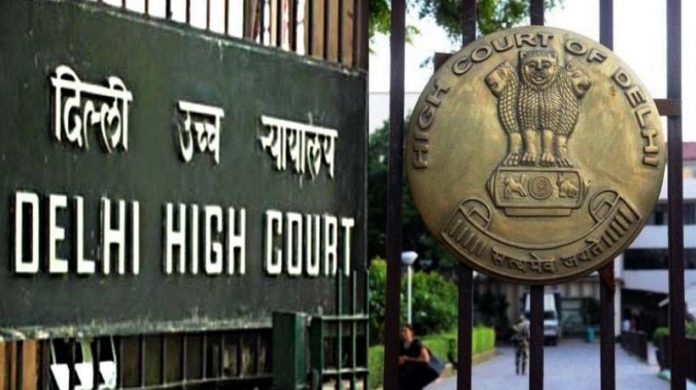This article is written by Ansruta Debnath, a student of National Law University Odisha. This article is a discussion on the efforts of the Delhi High Court with regards to minimising the disease of dengue in Delhi.
This article has been published by Diganth Raj Sehgal.
Table of Contents
Introduction
Dengue and other vector-borne diseases have become an increasingly concerning issue for Delhi. The Delhi High Court, has accordingly, taken certain steps on this issue. This article explores those initiatives, which include public interest litigations as well as addressing the issue through other petitions.
Taking suo moto cognizance
A division bench, comprising Justice Vipin Sanghi and Justice Jasmeet Singh had taken suo moto cognizance of the worsening mosquito infestation in the National Capital Region of Delhi in May of 2021. In its order, it observed that in light of the pandemic the steps that are taken for controlling the rise of vector-borne diseases like Dengue, Chikungunya and Malaria have taken a back seat. Accordingly, notices were issued to the three Delhi Municipal Corporations i.e. the North Delhi Municipal Corporation, South Delhi Municipal Corporation, East Delhi Municipal Corporation and the New Delhi Municipal Council, Delhi Cantonment Board, as well as the Government of National Territory of Delhi. The court asked all these authorities to present before the court all steps that have already been taken and steps that will be taken in the future to control the infestation.
The matter was then taken up by another division bench consisting of Delhi High Court Chief Justice DN Patel in July of 2021, wherein, the respondents were asked to file a status report as soon as possible. The corporations had also stated that they had carried out inspections and raised public awareness through campaigns. They also stated that spraying of pesticides had been done.
According to a South Delhi Municipal Corporation status report, 80 instances of chikungunya and 30 cases of dengue have already been documented in Delhi in just four months since January 1st this year, despite the fact that the season for vector-borne illnesses in Delhi runs from July to December. In 2016, Delhi saw its first chikungunya epidemic, which impacted 9,661 individuals. Dengue fever claimed the lives of 60 persons in 2015, with 16,000 cases documented.
When can courts take suo moto cognizance
Courts can take suo moto cognizance of various issues through Public Interest Litigations or PILs. This power lies only with the Supreme Court and High Courts by way of Article 32 and Article 226 of the Indian Constitution and is termed as the extraordinary jurisdiction of the Courts. Suo Moto acts by Indian courts illustrate judicial activism and have served to uphold the rights of Indian citizens and fulfil its role in a welfare state. ‘Suo moto’ literally means ‘on its own’. Essentially, if the courts feel there is a pressing matter that needs their attention, they can file a PIL and take cognizance of the issue. The matters generally involve the public and are a social concern. However, suo moto cognizance can also be taken in cases of contempt of court or while reopening old cases. The Supreme Court formalised the procedure for suo moto petitions by the adoption of Order 38, Rule 12(1)(a) in the Supreme Court Rules, 2013.
In 1979, Judge MP Thakkar used the suo moto procedure for the first time in a Gujarat High Court case. The Court was alerted to the issue by a news article about a wife who was not receiving a pension from her husband’s Pension Provident Fund (PPF) after his death. Accordingly, the State was ordered by the Court to immediately provide her with relief by way of pension.
Criticising the state government and corporations
The Delhi High Court made it absolutely clear that it was extremely disappointed by the lack of action by various municipal corporations and the Government of Delhi. The Court made its comments while hearing a petition of the South Delhi Municipal Corporation against the Government of Delhi regarding retrospective recovery of grants in aid. Moreover, the Courts remarked on the sorry state of affairs of Delhi and that the Corporations had failed to discharge their duties. Consequently, there has been a surge of Dengue cases. The Court further stated that only populist policies were being taken keeping in mind the vote bank politics. As a result, there was a complete “paralysis” of administration.
The Court felt that the dire state of affairs needed close monitoring and accordingly appointed Advocate Rajat Aneja as amicus curiae in the matter. An amicus curiae literally means “a friend of the court”. Essentially, an amicus curiae is a person who assists the court in various aspects of the facts of a case i.e, the issue of law. In this regard, the Court, in the order, also agreed to take the assistance of Dr. Kalpana Barua who belonged to the National Vector Borne Disease Control Programme (NVBDCP).
The SDMC’s counsel informed the Court that the reason the Dengue numbers were so high this year was due to the extraordinary rains in October. He said that certain Resident Welfare Associations (RWAs) were refusing to cooperate with officials when they came to do fogging and monitor mosquito breeding. As a result, he asked that orders be issued prohibiting RWAs from halting authorities and raising the fine from ₹500 to ₹10,000, with the power to collect the payment on the spot. The Bench, on the other hand, stated that it will not issue such orders because they were not the legislature.
The Supreme Court, in a separate order, had asked the Delhi authorities to hold meetings regarding this issue. However, the Supreme Court said they were quite disappointed with the outcome of the meeting.
Delhi High Court addresses a separate plea
In a separate plea of Ananya Kumar v. Government of NCT Delhi & Anr. (2021), the Delhi High Court issued a notice to the North Delhi Municipal Corporation. The petitioner, a resident of Model Town, was suffering from Dengue. She alleged that to avoid dengue, the North Delhi Municipal Corporation used to fog the region, conduct door-to-door information programmes, and check mosquito larvae. The respondent has not done the same this year, according to the plea. According to the petitioner, several instances of Dengue fever have been reported in her neighbourhood this year as a result of the authorities’ delay. Thus, the petitioner prayed for immediate steps by the Corporation as well as the imposition of penalties on them for the violations.
Other relevant cases
The issue of dengue and other vector-borne diseases had been taken up by the Delhi High Court back in 2017 in the case of Gauri Grover and Ors. v. the Government of NCT of Delhi and Ors. (2017). In the present case, this Court in the exercise of its extraordinary jurisdiction under Article 226, stated that the deplorable conditions in Delhi raised valid conditions of the diseases and criticised the Corporations for not taking adequate steps for garbage disposal in spite of the Court’s directions. The Court quoted the Supreme Court’s observations in Subhash Kumar v. the State of Bihar (1991) wherein the Supreme Court had observed that every citizen had a right to a clean environment and that the said right flowed from right to life in Article 21.
Furthermore, the Delhi Court issued notices to the Commissioners of East Delhi Municipal Corporation, South Delhi Municipal Corporation, and North Delhi Municipal Corporation to show cause as to why Contempt of Court proceedings should be not initiated against them.
Another Public Interest Litigation was filed in 2020 regarding this matter. In the case named Authorised Signatory Prem Chand Sharma vs. Government of NCT of Delhi and Ors. (2020), the Delhi High Court again ordered the South Delhi Municipal Corporation to take appropriate measures to rectify the situation of an increasing number of plots that were being converted into dumping grounds for garbage and sewage and thus ideal breeding grounds for mosquitoes.
Conclusion
The steps taken by the Delhi High Court were extremely needed. But, the municipal corporations have hardly taken any initiative in this regard, and have till now just supplied excuses, despite repeated reminders by the court. Because of the grave nature of the issue, immediate steps must be taken as soon as possible to control the escalating problem. The corporations must also be careful as if the delays continue without any legitimate reason, they will be at the risk of being slapped with contempt proceedings by the Delhi High Court.
References
- Delhi HC Takes Suo Moto Cognizance Of Mosquito Infestation, Rise Of Vector Borne Diseases
- Delhi HC takes suo-motu cognisance of increasing mosquito infestation in the city
- “Complete Paralysis Of Administration, Policies Made Only In Populist Way”: Delhi High Court On Authorities’ Failure To Control Dengue Menace
- Delhi high court raps municipal corporations over surge in Dengue cases
- Dengue Outbreak: Delhi High Court Appoints Advocate Rajat Aneja As Amicus Curiae To Closely Monitor Issue Of Mosquito Breeding
- [Dengue] Close monitoring required by the court to check menace on a permanent basis: Delhi High Court
- [Dengue outbreak] Policies are populist, governments scared of losing votes: Delhi High Court
- Suo Moto Cognizance by the Indian Judiciary
LawSikho has created a telegram group for exchanging legal knowledge, referrals, and various opportunities. You can click on this link and join:
https://t.me/joinchat/L9vr7LmS9pJjYTQ9
Follow us on Instagram and subscribe to our YouTube channel for more amazing legal content.
 Serato DJ Crack 2025Serato DJ PRO Crack
Serato DJ Crack 2025Serato DJ PRO Crack











 Allow notifications
Allow notifications


